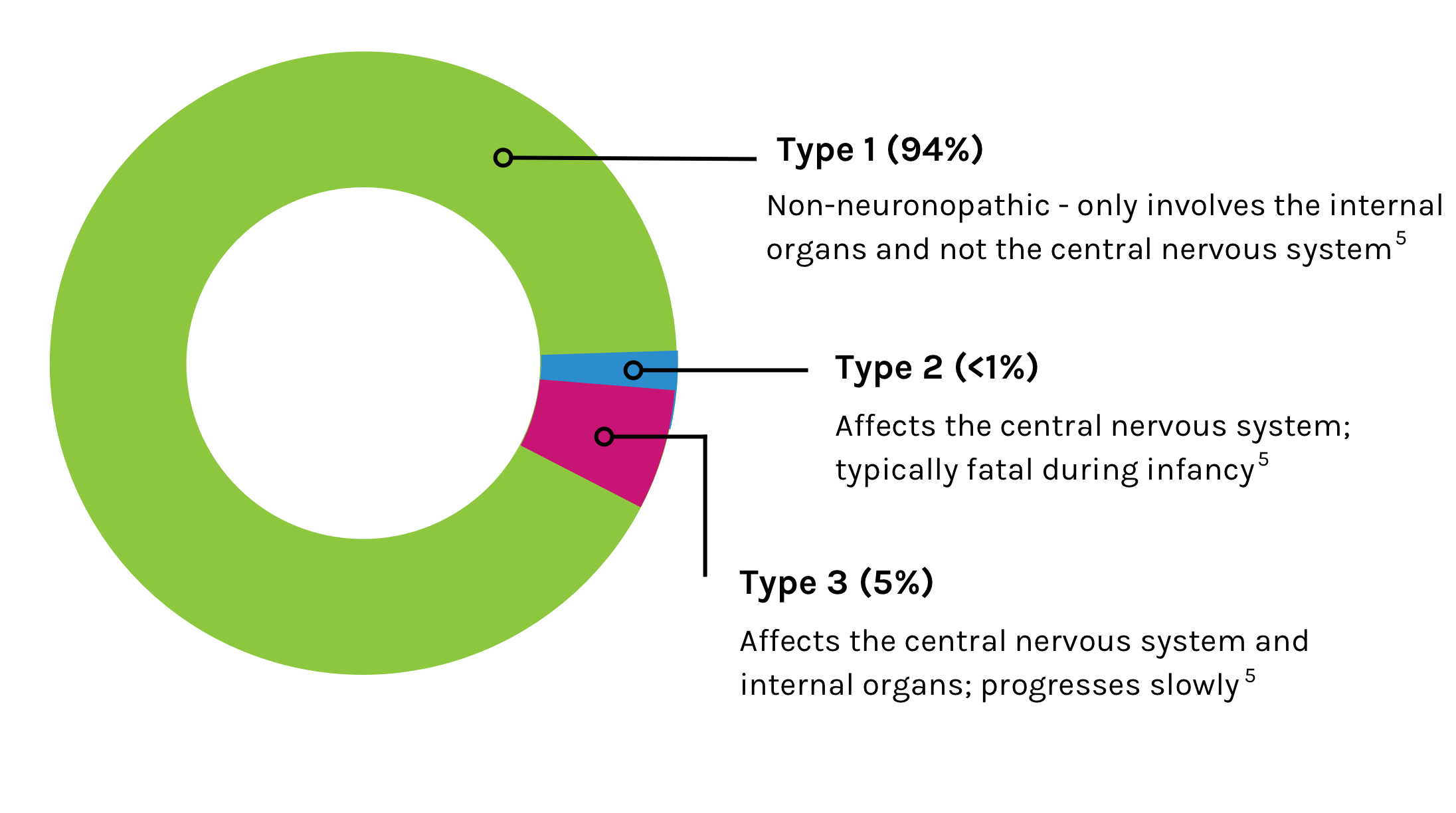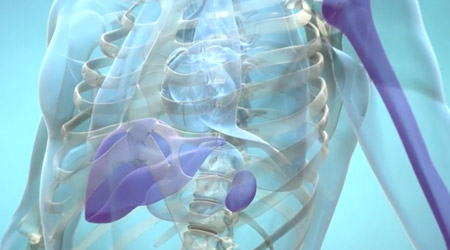What is Gaucher disease?
Gaucher disease is a rare genetic disorder that belongs to a group called Lysosomal Storage Disorders (LSDs). It is an inherited disorder in which a fatty substance called glucocerebroside builds up in the organs and tissues.1
It is caused by deficiency in an enzyme called glucocerebrosidase (GBA).1 In people with Gaucher disease, the gene that produces this enzyme, called the GBA gene, is altered (often called a gene mutation).
Gaucher disease symptoms vary widely and some people with Gaucher disease do not have any symptoms.3 The main signs and symptoms are an enlarged liver and spleen, low platelet and haemoglobin counts, and problems with bones and joints.4
There are three types of Gaucher disease

The percentages for types 1–3 shown in the diagram are based on data published in 20005, but higher percentages of patients are affected by Gaucher disease types 2 and 3 in parts of the Middle East and in Asian countries (including China and Japan) .6 For example, a study in Beijing (China) found that 15% of people with Gaucher disease had type 2 and 27% had type 3.7









